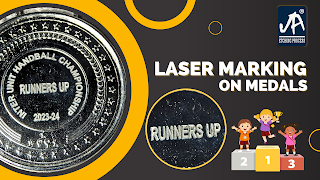Elegant Precision: Mastering Kripan Cover Moulds with Chemical Etching
In the intricate world of manufacturing, where precision meets artistry, the mastery of Kripan cover moulds is a testament to the commitment to excellence. One of the transformative techniques that have elevated the elegance and precision of these moulds is the chemical etching process. This nuanced approach, often complemented by laser etching on metal and Teflon coating, has redefined the landscape of Kripan cover production.
Chemical Etching: An Artful Process
Precision at a Molecular Level
Chemical etching is a delicate yet powerful
process that involves selectively removing material from a metal surface
through the application of chemicals. In the context of Kripan cover moulds,
this technique allows for the creation of intricate and precise patterns that
enhance the aesthetic appeal of the final product. The precision achieved at a
molecular level ensures consistency and detail in every etched design.
Artistry in Complexity
Kripan cover moulds often demand complex
and elaborate designs. Chemical etching rises to the occasion by offering a
level of artistry that traditional methods struggle to match. Whether it's
intricate patterns, logos, or detailed textures, the process allows
manufacturers to imprint their unique artistic vision onto each mould, creating
a distinctive and elegant product.
Laser Etching on Metal: Enhancing Detail
and Durability
Precision Beyond Limits
To further enhance the precision of
chemical etching, manufacturers often employ laser
etching on metal. This synergistic approach adds an extra layer of detail
to the etched designs. Laser technology, with its pinpoint accuracy, ensures
that even the most intricate elements of the design are faithfully reproduced
on the metal surface. The result is a level of precision that elevates the
aesthetic quality of Kripan cover moulds.
Durability Through Innovation
While chemical etching provides the
finesse, laser etching contributes to the durability of the etched designs. The
laser-etched patterns are not only sharp and detailed but also resistant to
wear and tear. This is crucial in the context of Kripan cover moulds, where
durability is a key consideration. The marriage of chemical and laser etching
ensures that the elegance of the design is complemented by long-lasting
quality.
Teflon Coating: The Finishing Touch of
Excellence
Non-Stick Magic
To crown the mastery of Kripan cover
moulds, Teflon coating is often applied. This coating, known for its non-stick
properties, not only enhances the visual appeal but also contributes to the
functionality of the moulds. The non-stick magic of Teflon ensures that the
molded Kripan covers release effortlessly, minimizing the risk of defects and
streamlining the manufacturing process.
Protection and Aesthetics
Teflon
coating goes beyond providing a non-stick surface; it also offers
protection against corrosion and abrasion. This is particularly valuable in
industries where Kripan covers may be exposed to challenging conditions. The
dual benefits of protection and aesthetics make Teflon-coated Kripan cover
moulds a hallmark of elegance and practicality.
Transformative Benefits for
Manufacturers
Brand Identity and Recognition
The mastery of Kripan cover moulds through
chemical etching, laser etching, and Teflon coating allows manufacturers to
establish a distinct brand identity. The artful designs, precision, and
durability become symbols of craftsmanship and excellence, contributing to
brand recognition in the market.
Streamlined Production
The integration of these advanced
techniques streamlines the production process of Kripan cover moulds. The
precision achieved through chemical and laser etching, coupled with the
functionality of Teflon coating, results in a manufacturing workflow that is
not only efficient but also consistently produces high-quality products.
Conclusion: Crafting Elegance through
Mastery
In the realm of Kripan cover moulds,
mastery is not just a goal; it's a journey that involves embracing innovative
techniques. Chemical etching, laser etching on metal, and Teflon coating are
the cornerstones of this mastery, contributing to the creation of elegant,
precise, and durable products. As manufacturers continue to refine their
approach, Kripan cover moulds become more than functional components; they
become works of art that embody the commitment to craftsmanship and excellence.


Comments
Post a Comment